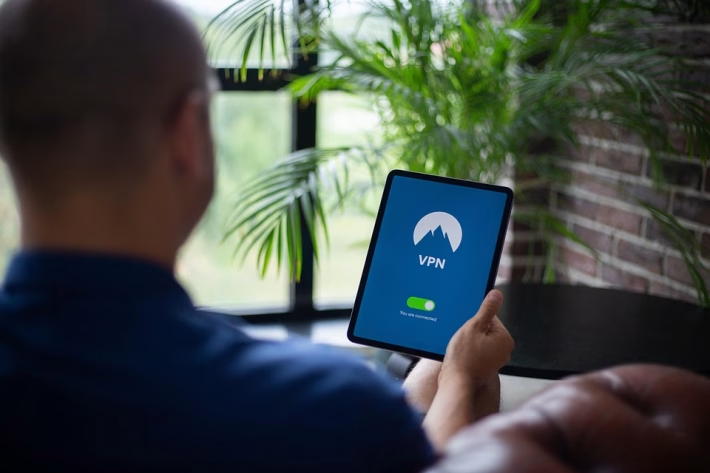The Future of Cybersecurity: Best Antivirus Software of 2025

Introduction: Why Security and Privacy Matter Today
In 2025, as digital life becomes increasingly entwined with our daily routines, the importance of cybersecurity and privacy has never been more critical. Cyberattacks are not merely abstract threats; they have real-world consequences that affect individuals and businesses alike. Data breaches, identity theft, and ransomware attacks have escalated in frequency and sophistication, illustrating the urgent need for robust security measures. Understanding these risks and implementing effective countermeasures is not just important; it is vital for safeguarding personal information and the integrity of business operations.
Overview: The Risks Businesses and Individuals Face
Cyberattacks
According to a recent report from Cybersecurity Ventures, global cybercrime will cost the world $10.5 trillion annually by 2025. The rise in cyberattacks can be attributed to more complex techniques employed by cybercriminals, often targeting both individuals and businesses. Common forms of attacks include phishing, malware, and ransomware, which not only compromise data but also disrupt operations and affect profitability.
Data Leaks
Data leaks occur when sensitive information is unintentionally exposed to unauthorized entities. This can happen due to poor configuration of cloud services, software vulnerabilities, or human error. For businesses, losing customer data can lead to severe financial penalties and reputational damage. For individuals, data leaks can mean identity theft or loss of personal security.
Identity Theft
Identity theft is a pervasive issue in today’s digital landscape, impacting millions worldwide. Cybercriminals often exploit public data or use phishing techniques to steal personal identifiable information (PII). The consequences can be devastating, ranging from financial losses to long-term emotional distress.
Best Tools for Cybersecurity in 2025
To navigate these threats adequately, both individuals and organizations must equip themselves with the best cybersecurity tools available. Below, we present some of the most effective and reliable tools:
1. Norton 360 Deluxe
- Features: Comprehensive antivirus, real-time threat protection, password manager, VPN
- Pricing: Starts at $49.99 per year
- Pros: User-friendly interface, multi-device support
- Cons: May slow down system performance
2. ExpressVPN
- Features: Fast speeds, server locations in 94 countries, no-log policy
- Pricing: $12.95/month or $99.95 for a year
- Pros: Top-rated for streaming, easy-to-use apps
- Cons: Higher price point compared to competitors
3. Dashlane
- Features: Password manager, dark web monitoring, secure storage
- Pricing: $59.99/year
- Pros: Simple interface, autofill feature
- Cons: Cloud storage is limited for free users
4. Bitdefender Total Security
- Features: Antivirus, anti-malware, VPN, multi-device support
- Pricing: $44.99/year for up to 5 devices
- Pros: Strong malware protection, minimal impact on system performance
- Cons: Some features are complex for non-technical users
5. Tresorit
- Features: End-to-end encrypted cloud storage, file sharing
- Pricing: Starts at $12.50/month
- Pros: High-security standards, compliance with GDPR and HIPAA
- Cons: More expensive than other cloud storage options
6. McAfee Total Protection
- Features: Antivirus, firewall, identity theft protection, secure VPN
- Pricing: Starts at $34.99/year
- Pros: Comprehensive features at a low cost
- Cons: User interface can be cluttered
7. LastPass
- Features: Password management, secure sharing
- Pricing: Free tier available; Premium at $36/year
- Pros: Strong security features, browser integration
- Cons: Recent security issues raised concerns
8. Private Internet Access (PIA)
- Features: Strong encryption, no-logs policy, ad blocker
- Pricing: $39.95/year
- Pros: High level of customization
- Cons: Slower speeds compared to other VPNs
9. Cylance
- Features: AI-driven antivirus for enterprise
- Pricing: Pricing varies based on deployment
- Pros: Predictive security model
- Cons: Primarily for businesses, can be complex to implement
10. ProtonMail
- Features: End-to-end encrypted email service
- Pricing: Free tier available; paid plans from $5/month
- Pros: Excellent privacy features, user-friendly interface
- Cons: Limited storage on free plan
Best Practices: Improving Security and Privacy Using Software
Step 1: Conduct a Security Audit
Evaluate current security measures to identify potential vulnerabilities. Regular assessments can help in recognizing weak points that require immediate attention.
Step 2: Utilize Multi-Factor Authentication (MFA)
Enable MFA on all accounts, especially those holding sensitive information. This adds an extra layer of protection by requiring two forms of verification.
Step 3: Regularly Update Software
Ensure all software, including operating systems and applications, are updated regularly. Updates often include security patches that address vulnerabilities.
Step 4: Use Strong, Unique Passwords
Employ a password manager to generate and store complex passwords for each account. Avoid using easily guessed information such as birthdays or names.
Step 5: Backup Data Regularly
Utilize secure cloud storage services and local backups to ensure data is retrievable in case of a breach or loss.
Step 6: Educate Employees
For businesses, regularly train staff on recognizing phishing attempts and the importance of cybersecurity. Awareness is half the battle.
Step 7: Monitor Data Leaks
Use services that monitor your information against third-party breaches. Early detection allows for quick responses and mitigates potential fallout.
Industry Trends: Insights into Current or Upcoming Cybersecurity Trends in 2025
AI and Machine Learning
In 2025, the integration of artificial intelligence and machine learning into cybersecurity tools continues to reshape the industry. These technologies enhance threat detection and response times, making security systems more proactive rather than reactive.
Zero Trust Architecture
Zero Trust models are gaining traction, emphasizing verification for every user and device, regardless of whether they are inside or outside the network perimeter.
Privacy Regulations
Increased emphasis on data privacy continues, with regulations like GDPR and CCPA spurring companies to implement more rigorous data protection measures. Expect further legislation aimed at curbing data misuse.
Cyber Insurance
As cyber threats become more prevalent, businesses increasingly turn to cyber insurance as a safety net against financial losses stemming from data breaches.
IoT Security Concerns
With the proliferation of Internet of Things (IoT) devices, significant vulnerabilities arise. Ensuring IoT devices are secure is becoming a priority for both consumers and businesses.
Case Studies / Examples: Real-World Security Breaches and Lessons Learned
Case 1: Equifax Data Breach
In 2017, Equifax suffered a massive data breach affecting 147 million people. A failure to patch a known vulnerability led to unauthorized access to sensitive data. The breach emphasized the critical need for regular updates and proactive vulnerability management.
Case 2: SolarWinds Hack
The 2020 SolarWinds hack revealed how sophisticated and deeply embedded cyberattack methods can be. Cybercriminals used software updates to infiltrate numerous organizations, including government agencies. Lessons learned include the importance of supply chain security and increased scrutiny for third-party vendors.
Comparisons: How Leading Tools Differ in Protection, Pricing, and Usability
| Tool | Protection Level | Pricing | Usability |
|---|---|---|---|
| Norton 360 Deluxe | High | $49.99/year | Very User-Friendly |
| ExpressVPN | High | $12.95/month | Easy to Use |
| Dashlane | Medium | $59.99/year | Highly Intuitive |
| Bitdefender | High | $44.99/year | Moderate |
| Tresorit | Very High | $12.50/month | User-Friendly |
| McAfee | Medium | $34.99/year | Cluttered |
Pros & Cons: Balanced Analysis for Informed Decisions
Pros
- Comprehensive Security: The best tools provide multifaceted protection against various threats.
- User-Friendly Interfaces: Many cybersecurity solutions are designed with usability in mind, making them accessible to everyone.
- Regular Updates: Consistent software updates ensure that systems stay ahead of threats.
Cons
- Cost: Premium cybersecurity tools can be expensive, posing challenges for small businesses.
- Complexity: Some tools, while powerful, can be complex and confusing for non-technical users.
- Dependence on Technology: Relying solely on automated solutions without human oversight can create blind spots.
FAQs
What is the best antivirus software for 2025?
Norton 360 Deluxe and Bitdefender are highly rated for their comprehensive protection and user-friendly interfaces.
Which VPN is safest?
ExpressVPN is commonly recommended for its high-speed performance and strong privacy policies, while Private Internet Access offers extensive customization.
How to secure business data?
Implement a combination of strong password management, multi-factor authentication, regular training, and regular security audits.
What is the importance of zero trust architecture?
Zero Trust architecture eliminates implicit trust and requires verification for every user accessing your network, significantly enhancing security.
How often should software be updated?
Software should be updated as frequently as possible, particularly when updates address security vulnerabilities.
Conclusion: Final Thoughts with Practical Advice and Clear Recommendations
As we move through 2025, the cybersecurity landscape will continue to evolve, with new challenges emerging at an alarming rate. Individuals and businesses must remain vigilant and proactive in their approach to data security. Investing in the best antivirus software, employing top VPNs for privacy, and utilizing secure cloud storage can provide a robust defense.
Remember, the most effective cybersecurity strategy combines reliable software tools with established best practices. Regularly audit your systems, keep abreast of emerging trends, and consider consulting cybersecurity experts to navigate the complexities of today’s digital world. With these measures in place, you can significantly lower your risk of becoming a victim of cybercrime.
🚀 Try Ancoia for FREE today and experience the power of business automation!
🔗 Sign up now and get a 7-day free trial



